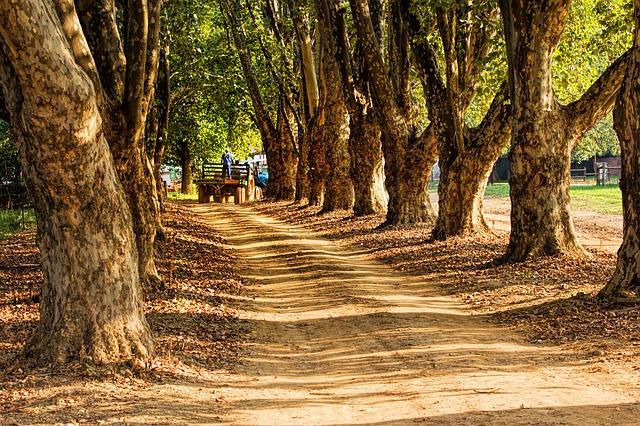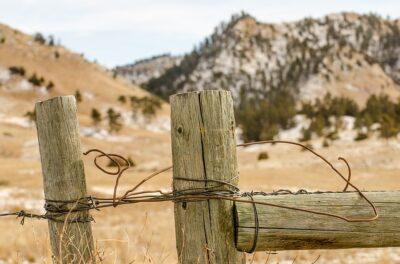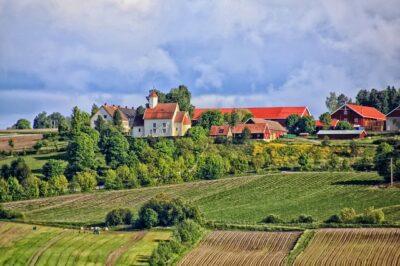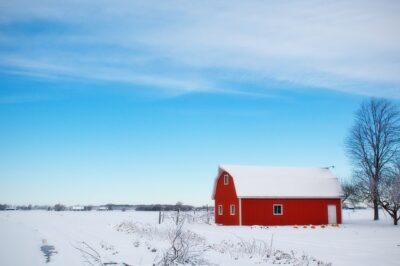My rudimentary grasp of mathematics tells me I have done the homesteading world a big favor. According to the law of averages, high numbers are offset by equally low numbers.
When it comes to mistakes made in buying rural property, I have made enough to allow for a lot of other people to keep theirs to a minimum.
I do understand that the law of averages isn’t quite that cut and dried. And I am pleased to say that my husband and I did do some things right when we bought our place in 2007.
But we have learned many lessons since then, and I would like to share a few points from my own successes and failures which might be helpful to others who are in the process of buying a homestead.
As with any real estate, there are three important factors to consider first: location, location, location. The following questions should be asked:
- Is the property in a flood zone or prone to other natural disasters?
- Is it in close proximity to eyesores, former chemical spills, or landfills?
- What kind of road is it on? If on a back road, who will maintain it and keep it passable in all seasons? If on the main road, what is the traffic like?
When we bought our property, we did not know that due to a quirky tangle of federal and state highway regulations, all 18-wheelers were required to leave the interstate some 40 miles south and travel two-lane roads from there to their destination. Trucks roaring past our house day and night were often so loud they would keep us awake at night and even limit conversation with the windows open.
New Solar Generators Deliver 4 Times More Power Than Previous Models! [2]
The locals had been fighting the issue for so many years that it seemed futile to hope for change. Astonishingly, change did come. Our senator fought hard for us in Washington and won. Our road still gets plenty of commuters, but it’s nothing like it was before. We lucked out, but bear in mind that not everyone is so fortunate.
The upside of living on a main road is that we rarely lose power, we are always the first to be plowed during a snowstorm, and we have a great location for a farm stand.
Speaking of farm stand, make sure there are no restrictions on that sort of thing if it’s part of your plan. Zoning and covenants vary widely across the nation and even from one small community to the next. Consider whether local rules will allow things such as:
- Anywhere on the property or just out back? Raised beds or in-ground?
- Any limits on numbers or species?
- Fencing of your choosing, or only a certain type?
- New barns or outbuildings? Add-ons? A sugar house?
- Clotheslines? Fire pits?
- Farm implements? Spare equipment for parts?
- Any decorations you like, or will the local code enforcement balk at your black-and-white Holstein design on the barn and the sculpture made of old tires on the front lawn?
Will you resent restrictions placed on your new deck designs and rustic perimeter fencing, or will you be grateful that such rules are in place to ensure that everyone in the neighborhood keeps things tidy? Bear in mind considerations such as:
- Are there property line setback rules that will make it challenging to fit in all your homesteading needs?
- Will you need building permits that are expensive or hard to get?
- Is there a limit on the number of buildings or their proximity to one another?
- Are buildings required by law to have power and plumbing? Ordinances are not always conducive to off-grid living, and some places prohibit it. If you plan to build off-grid on your new place, find out ahead of time if you’ll have to fight for it.
I was surprised to learn that although my town would allow me to house pigs in a crude plywood shack in my front yard if I wanted to, an outhouse in the woods of my back 60 acres would cost me hundreds of dollars in permits and inspections, and all off-grid human habitation is off-limits. Municipalities are often very strict about some things and lax about others.
Make sure you have plenty of space for all that you and your animals will need. I have seen online how-tos showing complete self-contained homesteads on a single acre; the drawing showed a house, barn, gardens, goats, chickens, a cow-calf operation, pigs, and a hay field.
I won’t tell you it can’t be done, but I know for sure that I couldn’t do it. My three-ish-acre pasture was not enough to sustain my pair of yearling steers during a dry summer and I had to buy hay to supplement their diet. My goats and pigs fared better elsewhere, browsing areas of edge and light forest, but still utilized another acre or so. Obviously, climate and weather, along with pasture quality, are all factors. But feeding a milk cow and dairy goats year-round on less than an acre seems like a stretch to me, at least in my region.
Get Out Of The Rat-Race And Make Money Off-Grid! [4]
A lot can be done on a small tract of land, to be sure. If you have a long enough growing season and your soil is rich enough, or if you are willing to purchase hay and browse from elsewhere, an acre might be just perfect. Smaller or fewer animals, or livestock kept just for a season instead of year-round, might make a difference, as well.
Soil quality is a big deal. Is your intended property currently a farm, or has been in the past? Was it organic or is the soil treated with conventional applications?
My place had been habited by suburbanites who raised flowers and lawn for a couple of generations. We were able to find out where the old barns used to be and decided to dig our in-ground garden on that spot. As we had hoped, it was nutrient-rich soil. But we hadn’t considered rocks. In the process of clearing a 30 x 30 garden, we hand-dug enough rocks to build a hundred-foot-long stone wall.
Since then, we’ve increased the garden size each year, and added raised beds as well. If you can find a place with established gardens, it’s a nice perk.
Consider what the priorities of past owners were. The people who sold us our place sold off the timber within the last decade. We were aware of that fact when we bought it, but it was still disappointing to find tons of brush and damaged standing trees and soil erosion left behind.
There was also a lot of trash. The picturesque landscaping ended at the edge of the manicured lawn. Under the dense shrubbery and forest canopy lay rusting vehicles, old tarps and rotting lumber and used roofing materials, dilapidated furniture, and hundreds of plastic bags full of used kitty litter. It took us a long time to clean it up and create animal pens out of that area.
On all but the smallest plots of land, there is no way a buyer can tour every acre before buying. When we bought ours there were no established paths and little access. But the more you can explore a potential purchase, the better.
Plant A Full Acre Of Food With This Emergency Seed Bank! [6]
There are always silver linings. The brush from past logging has encouraged wildlife habitat and left behind tote roads that we have opened up for use as hiking and snowshoeing trails. Our work of clearing out the trash has provided a strong sense of transformation and connectedness to the land.
Another good thing about the former owners not being farmers is that we didn’t have to worry about livestock parasites or communicable diseases. If you are buying a working farm, do your best to evaluate the level of risk from previous or existing livestock.
Don’t overlook infrastructure. When we were perusing the market, it was obvious that properties with barns and outbuildings and fences and bridges and farm ponds — not to mention fruit trees and berry groves and gardens — were significantly more expensive. We scoffed at paying for such stuff — why do that, when we could do it ourselves?
The truth is, you can build it all yourselves. Depending on your situation, that might very well be the best option for you. But if we could rewind the clock, we’d look for less house, probably less land, and a whole lot more infrastructure. We have spent thousands of hours and dollars building our own, which was time and money we could have devoted to tending gardens and goats.
Ask yourself how your time is best spent. If you are purists who are buying property debt-free and depending solely on the land for your sustenance, you might be better off doing it yourself. If you are going the route of existing house and mortgage and off-farm job, consider buying more in-place framework. Youth and farming experience and community support are all factors to consider as well.
Don’t forget that the place is going to come with neighbors. Whether you are buying an acre tucked in among similar-sized lots just outside a metropolitan area or a 500-acre spread where you can’t even see the smoke from the next-door neighbor’s chimney, you will probably bump up against those around you at some point. Everyone thinks their own style of rural living is best, but not everyone is blessed with neighbors who agree.
For example, think about lifestyle differences such as:
- Are you planning on loud outdoor parties and jeep jamborees next door to a quiet family of homeschoolers who embrace a simple lifestyle?
- Conversely, are you people-powered back-to-the-landers who will resent the sound of snowmobiles at roaring past at 1 in the morning?
- Will your pristine lawn and garden clash with the neighbor’s haphazard fence and the goats behind it? Or are you the unruly goat people in your neighborhood?
- Will you be seeking isolation and privacy amid inquisitive surroundings, or will you be the one peering over the fence watching the neighbors build an underground bunker?
- Are you a big fan of guns or fireworks, or do you avoid such things?
You don’t have to like them and they don’t have to like you, but it’s a nice thing when it happens. Avoid setting yourself up for a lifetime of headaches if you can.
Nobody gets it perfect every time. Although I made some mistakes when I bought my homestead, I have few regrets. Hopefully, some of these considerations will help you make your decision in a way that when you look back on your purchase, you too will know you made the right move.
What advice would you add? Share it in the section below:




